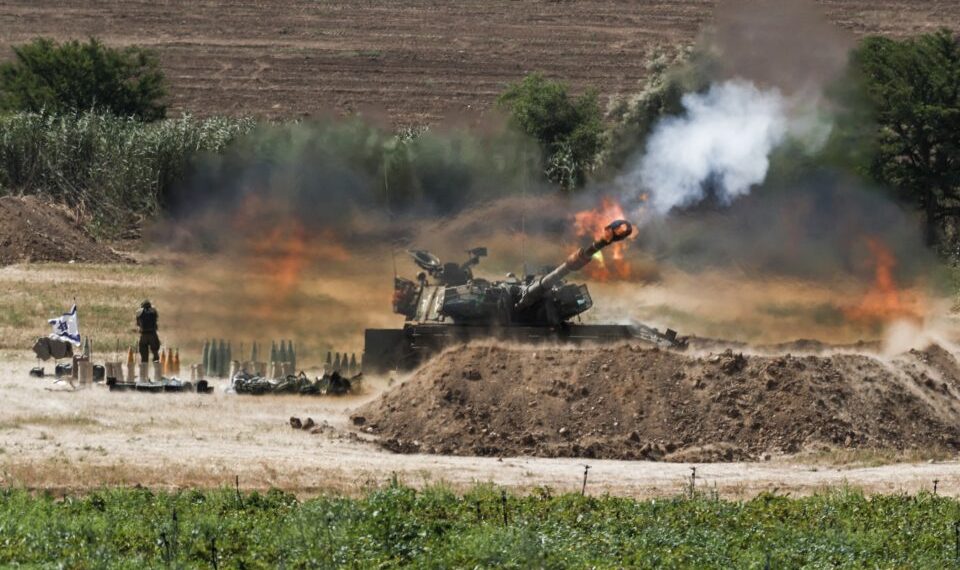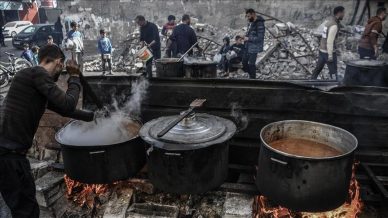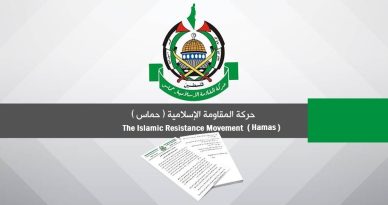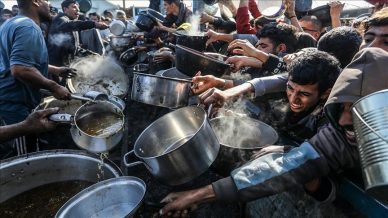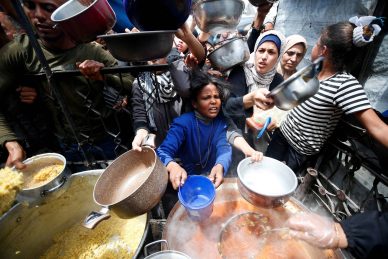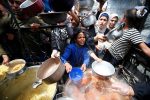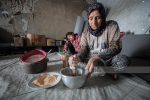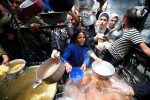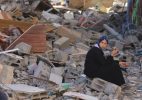The Israeli occupation forces (IOF) last May fired artillery shells into an area inhabited by Palestinian farmers killing a baby a teenager and four others. The IOF never reported the incident nor did they punish any senior officers according to Haaretz website on Tuesday.
“A nine-month-old baby a 17-year-old girl three women one man. All were noncombatant civilians as Israel defines them who were killed by [Israeli] artillery fire into Gaza during Operation Guardian of the Walls in May” Haaretz said in its report.
Haaretz said that that artillery attack mistakenly targeted makeshift structures along the border with Israel – “homes of Bedouin farmers that should have never been in the army’s sights.”
“This incident received no publicity but was known to the army which decided to investigate it. But after two and a half months the army only reported that it has “learned professional lessons and instilled them into the unit” Haaretz affirmed.
According to testimonies obtained by Haaretz that was not quite accurate. A few low-ranking soldiers were suspended for a limited time and then returned to their positions while a battalion officer was moved to a training position. That was the sum of the conclusions drawn. No senior officer was even punished let alone dismissed.
“The incident occurred on the evening of May 13 shortly before Operation Lightning Strike was launched to destroy the Hamas tunnels in the northern Gaza Strip. That attack was preceded by a deceptive move by the IDF: The army’s 162nd division was ordered to mislead Hamas into thinking that the army was about to launch a ground maneuver into the Strip which the IDF hoped would spur Hamas operatives to take shelter in the tunnels that were to be bombed. As part of that diversionary tactic the batteries of the 32nd Battalion began to fire heavy artillery at open areas in the northern Strip. Some 500 shells were fired. But some were mistakenly aimed at the al-Karya compound an agricultural site near Beit Lahia inhabited by civilians” Haaretz explained.
Despite the planned bombings the Israeli army did not ask the area’s residents to vacate their homes nor were any messages sent to them warning about an impending artillery attack.
“Then at around 6:30 p.m. the shelling of the homes began. One of them directly penetrated the home where the Abu Daya family lived” Haaretz said.
“I was sitting at our neighbors’ when suddenly I heard two shells falling” Nasser Abu Fares Abu Daya 50 the father of the family said. “I didn’t know where they had fallen but I saw smoke coming from my first house. I ran there quickly with my friends but even before we got there a third shell fell near us.” The inside of his house was full of smoke and dust and Abu Fares could not see who was inside and who was hurt.
Abu Fares told a B’Tselem investigator who collected testimony on the incident that while he was trying to locate his family members shells were falling all around him. Only after the smoke and dust cleared somewhat was he able to reenter his home. “I found my daughters the bodies of some of them were in pieces” he said. “My sons were wounded and the whole place was full of blood.”
“That morning Abu Fares had been the father of 12; by evening he was the father of nine. Daughters Fawziya 17 Nisrin 26 Sabrine 28 and her nine-month-old baby Mohammed Salama had been killed. The wounded children were taken to the hospital in Beit Lahia. En route his car was hit by the nonstop artillery fire. When he got there he had another job besides sitting with the wounded; he also had to identify the bodies of his daughters and grandson” according to the report.
“The pathologist set out their body parts so I could identify them. It was unbearable. I couldn’t stand it” he said.
The shelling didn’t only kill members of his family. “I heard my neighbors say that a shell fell on their house too the Ayash family” Abu Fares said in his testimony. And indeed in the house next door Niama Saleh Salama Ayash 47 was killed along with Hashem Mohammed Ayad Ali a-Zagheibi 20.
“My wife and I lived on the ground floor and my mother lived next to me in a tin house” Ismail Ayash 50 Niama’s brother told B’Tselem. That evening there had been a family gathering in honor of Eid el-Fitr that neighbors also attended. They were trying to keep up their routines despite the fighting. “None of the residents of al-Karya evacuated their homes because we are near the border and there are no Hamas positions in the area” Ayash said. And then the explosions started.
“I heard screaming and the sound of windows shattering” he said. Niama climbed the stairs to the first floor and his mother his sister Sara neighbor Jamila and her daughter-in-law came into his home. “I went into the street and saw it was full of ruins and concrete blocks” he said. “I heard screams and crying and I saw wounded people on the ground. The street was totally destroyed it was full of blood and there was dust and smoke. It was an unendurable sight.”
He had no idea about what had happened in his home. “I didn’t see my sister Niama. I assumed she had run away. I saw my sister Sara and Jamila and her daughter-in-law escaping. I saw that Abu Fares’ home which is right next to ours was totally destroyed. I saw them trying to remove bodies from the ruins.”
It was only at the Indonesian Hospital in the northern Gaza Strip where he was taken for treatment with his family that Ayash realized what had happened. “I was looking for my sister Niama. I went through all the wards and after an hour and a half I found her in the refrigerator. She died from being hit by shrapnel when she was in the stairwell. I heard that Hashem a-Zagheibi who was hit by shrapnel from a shell that fell near our front door was killed. Later I heard that Nasser Abu Fares lost three of his daughters and his grandson.”
All the survivors were sent from the hospital to the school in Beit Lahia to take shelter. “We came to the shelter with nothing only the clothes we were wearing” Ayash said. “We were left there in very difficult conditions. We sat and slept on the floor. After three or four days some people donated a few mattresses and blankets. We didn’t have anything to eat or drink and it was total chaos.”
“The day after the attack the IDF spokesman at the time Brig. Gen. Hidai Zilberman (who has since been promoted) gave a briefing to journalists listing the army’s accomplishments the previous night. The tunnels that had been destroyed the number of air force planes that had fought (around 160) the quantity of bombs the shells and missiles that had been fired at various targets” Haaretz pointed out.
“Some 450 munitions were fired at 150 targets in 35 minutes” Zilberman said with satisfaction without saying anything about what had really happened in the agricultural area between Beit Lahia and the border.

